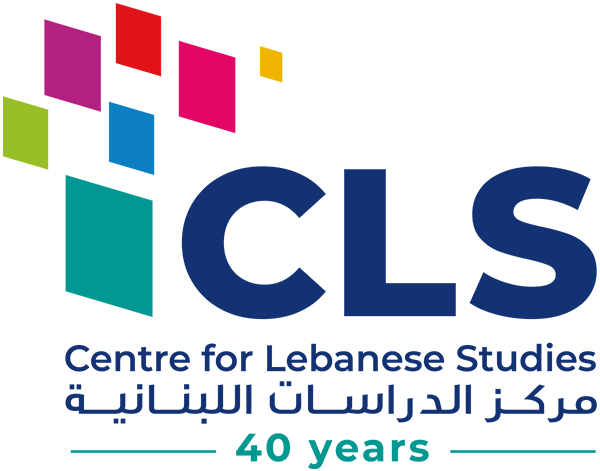Date: Monday, March 31, 2025
Location: University of Cambridge, UK / Hybrid
Covers: local transportation within the UK and catering during the time of the event
Open to PhD students in the UK
Event Organizer: Cyrine Saab
Keynote speaker: Dr. Lakshmi Priya Rajendran
Mentors: Dr. Hilde Refstie, Dr. Jáfia Naftali Câmara, Dr. Nidal Sleiman, Giada Costantini
Support from: Jessica Sullivan, Melissa Matar, Samah Choukri & Dr. Fawzieh Makkawi
Early Career Scholarship at Times of Genocide
Research Activities: This one-day event will offer PhD students the opportunity to participate in the following activities:
1. Paper Panels
The morning sessions in this one-day event will comprise two panels.
a. Education Policy and Social Justice
This panel invites presentations and papers that explore the influence of local and transnational policies on education practices and outcomes, with a particular focus on policy advocacy, as well as the risks and opportunities embedded in the field. We are interested in examining how policies can address, dismantle, or perpetuate injustices, including equity and inclusion within both formal and non-formal educational settings, particularly for historically marginalized groups (e.g., refugees, migrants, and people with disabilities).
Presentations may address the following areas:
– National education policies, including those from government, private sector, civil society organizations, and organizations of persons with disabilities, and the roles of both state and non-state actors in shaping these policies.
– International education policies, such as those from EFA, UN bodies, INEE, ECW, OECD, and the World Bank, and how international entities influence national and international organizations’ responses to issues of quality and equitable access to education for all.
– Critical analysis of whether and how international organizations are operationalizing and implementing inclusive education policies and practices.
– The role of leadership in education, and how leaders respond to policies and promote social justice through agency and activism.
– Adoption of an inclusive framework in war-to-peace transition contexts when developing and implementing education policies.
We welcome different approaches and theoretical frameworks addressing social justice in and through education, and critical policy analysis.
b. Methodological and Ethical Challenges
This panel seeks critically reflective contributions that confront the ethical and methodological challenges of conducting research in times of genocide, mass violence, and oppression. We encourage submissions that push boundaries, challenge orthodoxies, and envision radical ethical approaches that resist exploitative and extractive research practices. You are welcome to address any of the following questions:
– What are creative and innovative epistemological, methodological and research design approaches in education, migration and disability research?
– What ethical challenges have you encountered and how did you address them?
– How have you addressed asymmetrical power relationships in your research?
– How do you conceptualize power dynamics in research and knowledge production? How have you methodologically addressed asymmetrical power relations?
– How have you methodologically enacted (or attempted to) anti-oppressive/anti-exploitative/anti-extractive research practices?
– How can we methodologically consider intersectional inequalities in research?
– What methods and approaches support the involvement of migrants, refugees and internally displaced persons in research and co-production of knowledge?
– What empirical, conceptual and methodological challenges have you faced in transnational or trans-local research?
2. Research Clinics
The afternoon sessions in this one-day event will comprise two research clinics.
a. The Three-Minute Clinic: Addressing Difficult Scenarios
This clinic focuses on addressing the challenging scenarios faced by scholars during times of genocide and crisis. Participants will prepare a three-minute difficult scenario to discuss with the mentors. Scenarios can revolve around topics such as:
– Moral and ethical stances in academia (e.g., reflection on the professional consequences of taking a moral stance in difficult times)
– Writing and dissemination (e.g., non-academic writing for wider dissemination, publishing opportunities)
– Post-PhD guidance and career development (e.g., what happens after a PhD, tips and guidance for grant writing, fellowships and networking as a scholar conducting research in the context of genocide)
b. The Speed-Feedback Clinic: Supporting Purposeful Scholarship
This clinic emphasizes the importance of supporting each other in producing purposeful, non-mainstream scholarship, especially during times of genocide and crisis. In this exercise, participants will bring a two-page writing sample and receive targeted feedback from mentors. Feedback will focus on:
– Writing style and structure (e.g. developing relevant and accessible narratives)
– Theoretical and conceptual development (e.g. challenging dominant frameworks)
– Methodological rigor (e.g. ensuring ethical approaches to research)
3. Take a Stance: Critical Reflections on the Role of Scholars and Scholarship
Take a Stance is an interactive exercise designed to provoke critical reflection on the role of scholars and scholarship during times of genocide.
If you have any questions about the event or any of the research activities, you can email Cyrine Saab [email protected]
